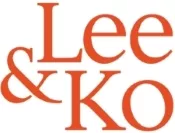Korea Customs Service ("KCS") has been well recognised for its proactiveness, both internationally and domestically, especially when it comes to customs audits1. Whereas KCS' accumulated expertise enhances revenue collection, trade compliance and security, it inevitably poses challenges for Korean importers. As part of the ongoing efforts to ensure importers' data submission during customs audits, KCS recently issued a notification regarding a plan to establish a new government regulation titled the "Directive regarding the Procurement of Tax-related Data during Customs Audits" (the "Directive"). The KCS' stated purpose of the Directive is to "increase the effectiveness of data provision, by strengthening countermeasures against uncooperative entities, and to conduct customs audits with fairness and precision, by improving relevant data request procedures".
Below we provide a summary of the Directive, with a particular emphasis on so-called "Uncooperative Entities", i.e. entities that do not cooperate in providing data necessary for customs audits. We also consider how this new Directive might impact multinational entities' trade operations involving Korea.
Overall Structure of Directive:
- Purpose and Definitions [Articles 1-2];
- Customs Audit Data Request and Verification Procedures [Articles 3-6];
- Countermeasures Against Uncooperative Entities [Articles 7-18]; and
- Protection of Taxpayer regarding said Countermeasures [Article 19].
Key Points concerning Uncooperative Entities
- Definition: An Uncooperative Entity means a person or business who falls under Article 138(1)(i)2 of the Enforcement Decree of the Customs Act and either: delays or declines the submission of tax-related data requested in a customs audit without just cause; or submits falsified data. [Article 7]
- Principle of Countermeasures: The countermeasures against an Uncooperative Entity should be deployed at a minimally necessary level, in correlative sequence, and should be removed promptly upon termination of pertinent uncooperative acts. [Article 8]
- Specific Countermeasures:
-
- Extension/Pause of Customs Audit: the on-site phase of a customs audit may be extended by up to 20 days, and/or the customs audit may be discontinued until the audited entity submits the concerned data [Articles 9-10];
- Administrative Fine: monetary fines3 may be imposed, with differing maximum thresholds according to the types of noncompliance stated, for refusal or falsely formulated responses to customs audit inquiries [Article 11];
- P/L Exclusion: the Uncooperative Entity may be excluded from paperless customs clearance processes ("P/L"), and obligated to submit actual import documents which would cause delayed import clearance [Article 12];
- Upward Adjustment of Customs Inspection Rate: a higher import inspection rate would also result in slower import clearance [Article 13];
- Exclusion from Monthly Duty Payment: this administrative action, applicable when the uncooperative acts persist after P/L exclusion, would put financial strain upon the Uncooperative Entity since it has to make prompt customs duty payments instead of receiving deferrals of up to 1 month [Article 14];
- Non-issuance of Corrected Import Duty Invoice: to simplify, in this case the Uncooperative Entity cannot apply for the income tax deduction for the concerned (disputed) imported goods, meaning the VAT paid would be unrecoverable even if the goods were sold to domestic businesses or consumers [Article 15];
- Denial of Transaction Price: to paraphrase, the customs dutiable value which had been declared by an Uncooperative Entity may be disputed by KCS in a customs audit, causing KCS to re-determine the dutiable value and subsequently leading to additionally assessed customs duties [Article 16];
- Selection as Irregular Customs Audit Target [Article 18] and/or Escalation into Criminal Penalties: these would signify the end of the line in a customs audit, with the former4 meaning a vigorous follow up audit, and the latter being the worst case scenario possible [Article 17].
First Impressions
Whilst most of the contents of the Directive are, as cited in Article 1, based on current customs laws and seek to provide further details, it is noteworthy that KCS expressly defines the meaning of "Uncooperative Entity" and pertinent countermeasures against such entities [Articles 7-18]. Furthermore, the express wording that "CBIs or global headquarters' corporate policy cannot be 'just cause' for the audited company to decline data provision to KCS [Article 7(2)(ii)(a)]" appears to be geared towards multinational entities doing business in Korea.
Combined with KCS' general tendency to be meticulous when posing queries and analyzing price data, and the increasing probability of customs audits escalating into criminal investigations, the Directive is more likely than not to raise alerts within the Korean customs community.
How impactful will the new Directive be?
According to publicly available information, KCS envisions a substantial increase in the number and scope of customs audits and criminal investigations, compared to the previous year. Also, KCS has been emphasising the importance of compliant trade and supply chain security, with this trend encouraging the KCS officers to penalise importers and exporters even for procedural errors that are irrelevant to revenue shortage or willful criminal intent.
We tentatively foresee the Directive to work in conjunction with the above trends to increase the hurdle of customs audits, in particular for MNEs that have access to financial data restricted by global headquarters.
Considering the foregoing, it would be optimal for global enterprises to check their Korean entities' preparedness for the next round of customs audits, more so if they have not experienced a KCS customs audit in the last 4 - 5 years. As the Directive recently came into effect, on April 5, 2024, we plan to provide further updates such as specific details of the Articles and pertinent leading cases, in subsequent articles.
Footnotes
1. The official legal term for customs audits in Korean law can literally be translated as "customs investigations". Nevertheless, I have opted to retain the commonly-used practical term "customs audit", to prevent confusion with criminal investigations.
2. Article 138 (Grounds for Excluding from Assumption of Duty Payer's Good Faith, etc.) (1) "Other cases prescribed by Presidential Decree" in Article 113 (1) of the Act means any of the following cases:
1. Where any duty payer fails to perform his/her duty to cooperate in payment of duties, such as a declaration for duty payment, an application and the submission of duty data;
[excerpted from official translation by the Ministry of Government Legislation of Korea]
3. To clarify, the fines delineated in Article 11 of the Directive are non-criminal monetary fines.
4. The "Irregular Customs Audit" as in this context is closest in meaning to a non-scheduled audit upon a certain importer, with relatively higher implications (as compared to 'regular' customs audits) towards administrative or criminal noncompliance.
The content of this article is intended to provide a general guide to the subject matter. Specialist advice should be sought about your specific circumstances.



